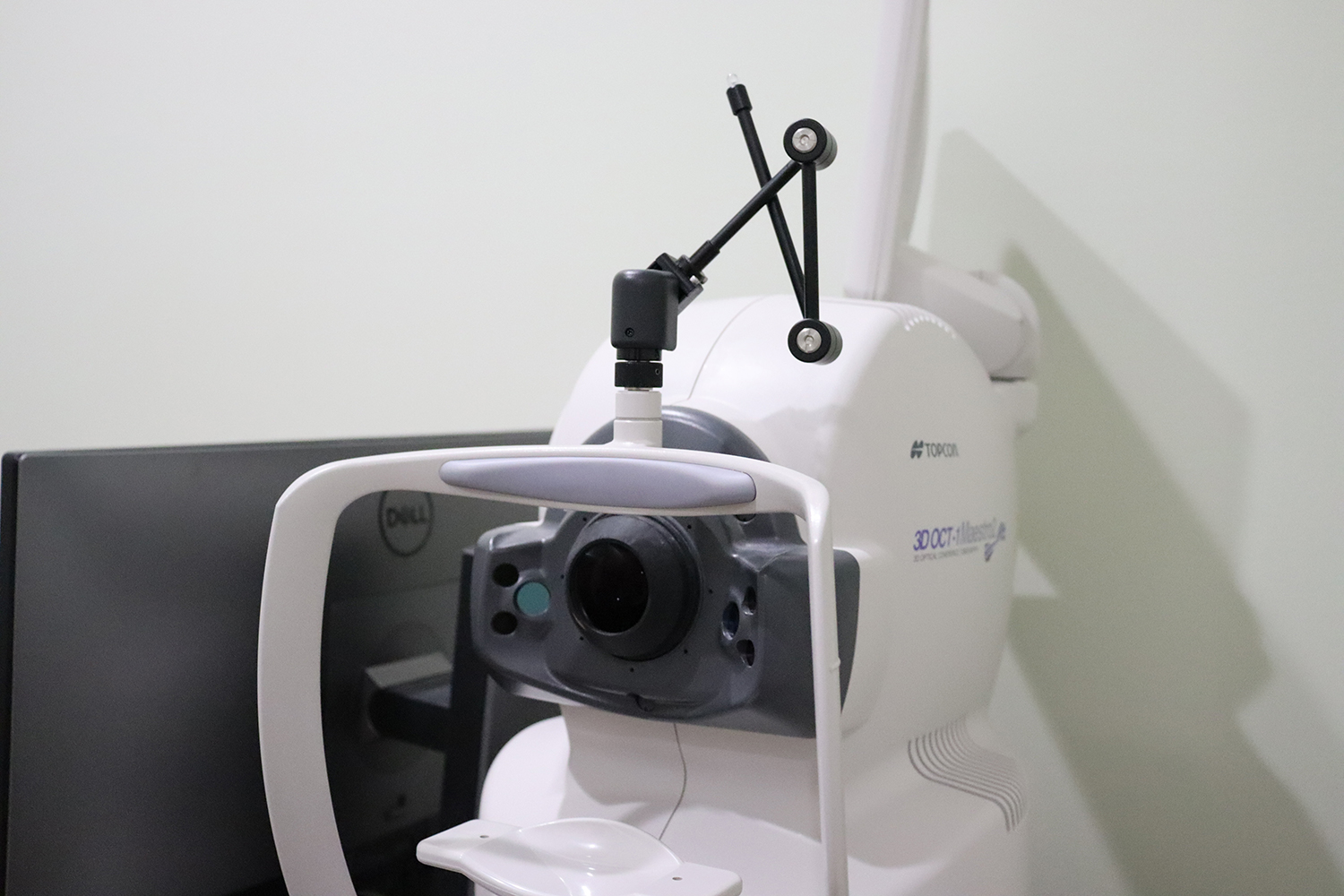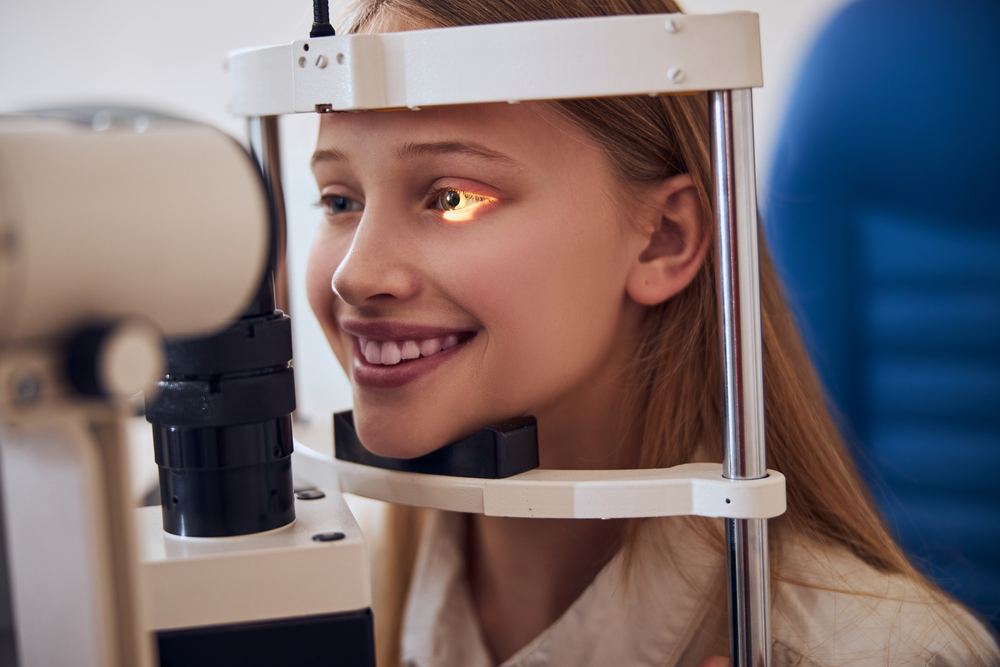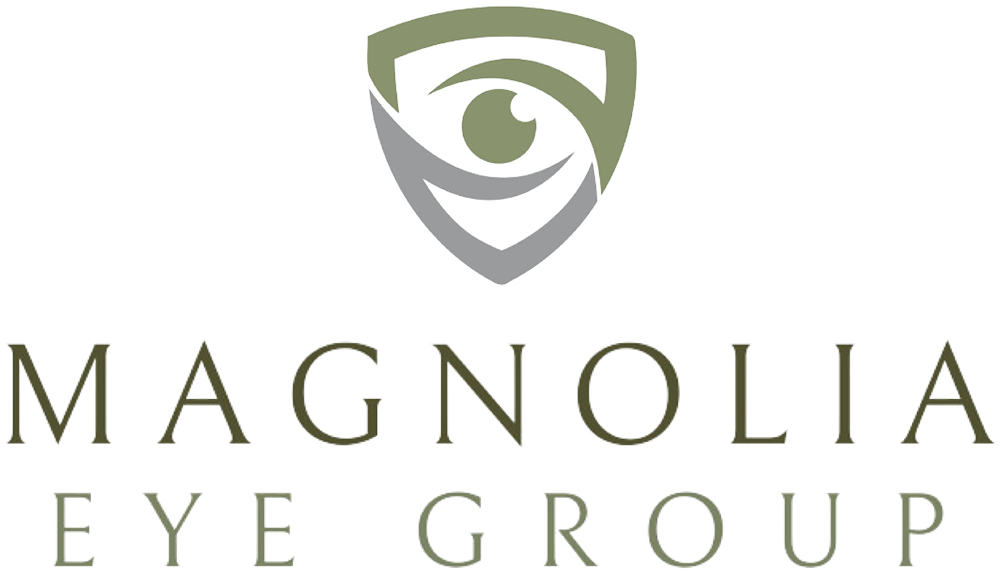Vision Therapy
Vision therapy is an evidence-based practice designed to retrain vital visual skills by improving the coordination between the eyes and the brain. At Magnolia Eye Group, we provide personalized treatment plans that include a combination of in-office procedures led by our doctors and at-home exercises to help solidify these skills. Our comprehensive approach ensures that you or your loved one receives the most effective vision therapy available to overcome visual challenges and improve quality of life.
The body is a complex system, with the brain working in tandem with other parts of the body to produce function and movement. If the brain and eyes don’t work together as a team, vision therapy may be needed to help correct this. Think of it as physiotherapy for the eyes!
Learn more about vision therapy today.

Understanding Vision Therapy
Vision therapy works much like physical therapy, but for your eyes and visual system. It involves a series of customized exercises and activities that strengthen the connection between your eyes and brain, enhancing visual processing skills that might be underdeveloped or functioning inefficiently. These exercises target specific visual skills like eye teaming, focusing, tracking, and depth perception – all crucial abilities that impact how effectively you interact with the world around you.
Approximately 80% of learning occurs through vision, making proper visual function essential, especially for children. Undiagnosed visual issues can lead to significant challenges in reading, learning, and overall academic performance. Vision therapy provides a non-invasive, drug-free approach to addressing these challenges at their source.

Valuable Visual Skills
Children aren’t born with the visual skills they need—they develop them over time, just like they develop the ability to walk and talk.
Good visual skills are essential to learning. Approximately 80% of what children learn happens through their vision. Whether it’s reading, interacting with other kids, throwing a ball around, or seeing what the teacher writes on the board, eyesight is involved.
Read More
The following issues may indicate that your child needs an appointment with an optometrist to discuss vision therapy:
- Poor reading comprehension
- Holding books close to the face while reading
- Short attention span with close-up tasks
- Losing or misplacing items
- Clumsiness and knocking things over
- Skipping or repeating lines while reading
Benefits of Vision Therapy
Improved Reading and Learning Capabilities
Vision therapy can significantly enhance reading fluency, comprehension, and overall learning abilities. When your eyes work together properly, you can track words across a page smoothly, maintain focus, and process visual information more efficiently. This improvement can be life-changing for students who have struggled with reading despite normal eyesight. Many children who previously avoided reading discover a new enjoyment of books after completing vision therapy, leading to better academic performance and confidence in the classroom.
Enhanced Sports Performance
Athletes rely heavily on visual skills like depth perception, peripheral awareness, eye-hand coordination, and visual reaction time. Vision therapy can fine-tune these abilities, giving you a competitive edge in sports activities. Improved visual processing means better anticipation of ball movement, more accurate judgment of distances, and quicker reactions to changing game situations. Many athletes report noticeable improvements in their performance after completing a vision therapy program, with benefits extending to both recreational and competitive sports participation.
Reduced Eye Strain and Fatigue
In today’s digital world, our eyes often work overtime, leading to visual fatigue and discomfort. Vision therapy strengthens the eye muscles and improves visual efficiency, reducing symptoms like headaches, eye strain, and blurred vision after extended close work. By developing better visual stamina, you can work or study for longer periods without the usual discomfort. This improvement is particularly valuable for those who spend significant time on computers, tablets, or other digital devices throughout their day.
Better Balance and Coordination
Vision plays a crucial role in balance, spatial awareness, and overall coordination. When vision therapy improves how your eyes work together, it can enhance your ability to navigate physical space confidently. Children with coordination issues often show remarkable improvement after vision therapy, becoming less clumsy and more confident in physical activities. Adults may notice improvements in driving, sports, and everyday movements, with many reporting increased confidence in their physical abilities and spatial awareness.
Alleviation of Vision-Related Headaches
Many recurring headaches stem from undiagnosed vision problems, particularly those related to eye strain or poor binocular vision. Vision therapy addresses these underlying issues, often resulting in a significant reduction in headache frequency and intensity. Patients who have suffered from chronic headaches for years sometimes find relief through vision therapy when other treatments have failed. By improving how efficiently your visual system functions, vision therapy eliminates a common trigger for tension headaches and eye fatigue.
Our Vision Therapy Process
Comprehensive Vision Assessment
We begin with a thorough evaluation of your visual skills to identify specific areas needing improvement. Our optometrists use specialized tests to measure how well your eyes work together and process visual information.
Personalized Vision Plan
Based on your assessment results, we create a tailored program addressing your unique visual challenges. Your plan includes specific activities designed to strengthen particular visual skills that will make the most difference in your daily life.
Guided Therapy Sessions
Your regular in-office sessions combine expert instruction with hands-on practice using specialized equipment. Each appointment builds on previous progress while our therapists adjust techniques based on your response and comfort level.
Home Reinforcement Activities
Between office visits, you’ll practice specific exercises that reinforce and strengthen your developing visual skills. These carefully selected activities typically take just 15-20 minutes daily but are essential for creating lasting neural connections.
Progress Monitoring
We track your improvement through regular evaluations that measure changes in your visual abilities. These check-ins allow us to celebrate successes and make any necessary adjustments to maximize your results.

Why Choose Us for Vision Therapy
At Magnolia Eye Group, our vision therapy program is backed by years of specialized training and experience in developmental optometry. Our therapists are certified professionals who stay current with the latest research and techniques in vision therapy. We use state-of-the-art equipment and evidence-based methods to provide the most effective treatment possible for patients of all ages.
What truly sets us apart is our commitment to personalized care. We understand that each patient has unique visual challenges and goals, and we design our therapy programs accordingly. Our success is measured by your improved quality of life – whether that means better academic performance, enhanced athletic abilities, or relief from visual discomfort. We work closely with other healthcare providers, educators, and family members to ensure a comprehensive approach to your visual health and development.
If you want to set them up for success, visual skills must develop normally. Children who start school with undiagnosed vision problems may struggle to keep up in class. They may be misdiagnosed with ADHD or another behavioral disorder.
Undiagnosed vision problems can also lead to:
- Learning at a slower rate than their peers
- Behavioral and disciplinary problems
- Higher risk of dropping out of school
If you notice any problems with your child’s learning, be sure to book them an appointment to rule out a vision condition and get started on vision therapy if it suits their needs.
Unlock Your Visual Potential Now
Vision therapy can be life-changing for those struggling with visual processing challenges. Whether you’re a parent concerned about your child’s reading difficulties or an adult experiencing visual discomfort, our specialized vision therapy program can help. Contact Magnolia Eye Group today to schedule a comprehensive visual evaluation and take the first step toward better visual function and improved quality of life.
FAQs
What is vision therapy?
Vision therapy is a doctor-supervised program of progressive visual activities designed to correct visual-motor and perceptual-cognitive deficiencies. Unlike eyeglasses which simply compensate for vision problems, vision therapy aims to “teach” the visual system to correct itself through specialized exercises that strengthen the eye-brain connection.
Is vision therapy a hoax?
No, vision therapy is a scientifically supported treatment approach recognized by major health organizations, including the American Optometric Association and American Academy of Optometry. Numerous peer-reviewed studies have documented its effectiveness for specific visual disorders when prescribed by qualified providers who base treatment recommendations on thorough assessments.
Is vision therapy covered by insurance?
Coverage for vision therapy varies significantly among insurance providers and plans, with some recognizing it as medically necessary while others classify it as a specialized service. At Magnolia Eye Group, we can help you understand your insurance benefits and explore financing options, but we recommend contacting your provider directly to verify your specific coverage.
Does vision therapy work?
Yes, vision therapy is effective for specific visual conditions when properly diagnosed and treated, with research showing particular success in treating convergence insufficiency, amblyopia (lazy eye), strabismus (eye turn), and various binocular vision disorders. Success depends on accurate diagnosis, appropriate treatment planning, and patient compliance with the prescribed therapy program, as not every visual problem is suitable for vision therapy treatment.
How long does vision therapy take?
Most vision therapy programs range from three to nine months, with weekly in-office sessions and daily home exercises based on the condition being treated, its severity, and individual factors. Your treatment plan at Magnolia Eye Group will include an estimated timeline based on your specific needs, with some patients noticing improvements within a few weeks while more complex conditions may require longer treatment.
